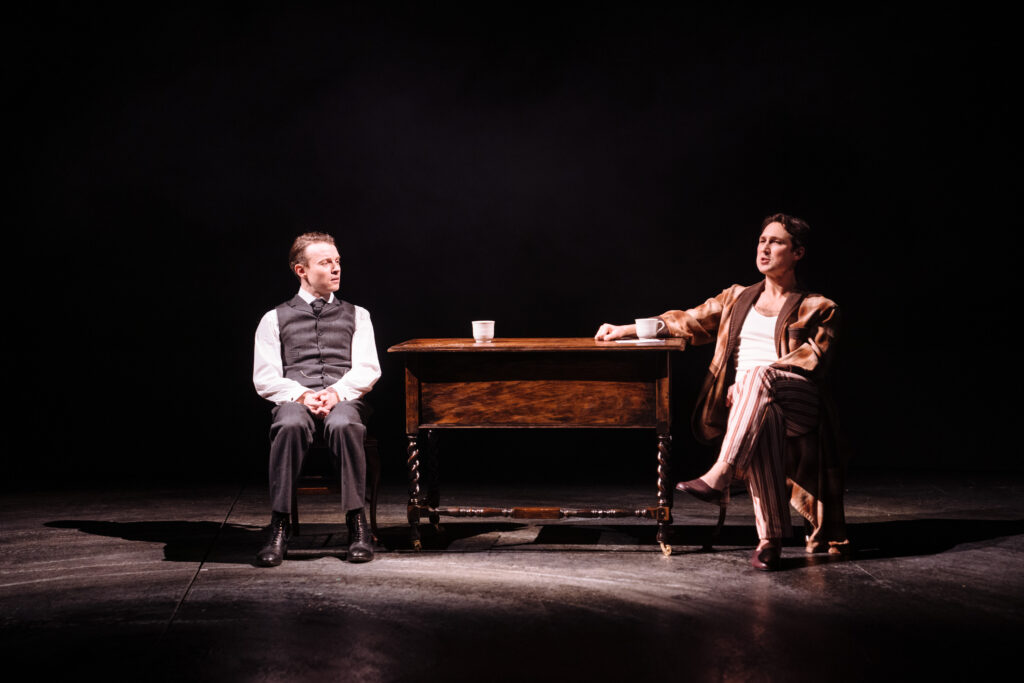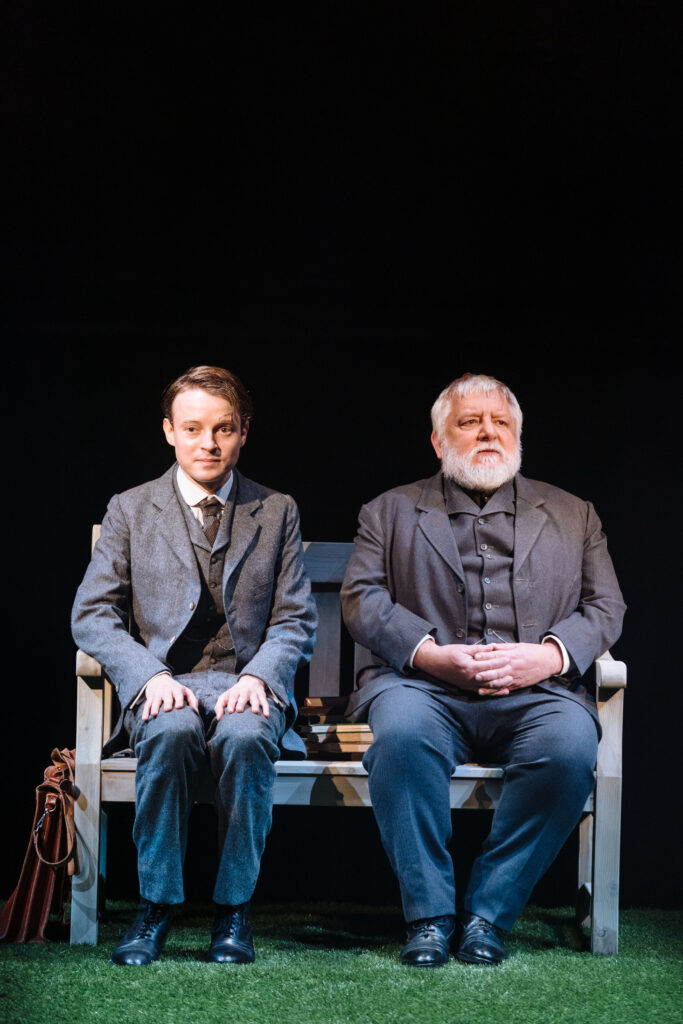
You can’t deny that Tom Stoppard’s 1997 play, The Invention of Love, is very clever – mostly because it’s constantly reminding you of just how clever it is, and how indescribably intelligent all of its characters are.
Notionally this is a play about A.E. Housman, played by Simon Russell Beale and Matthew Tennyson in his old age and his youth respectively. The old poet and scholar has recently died and passed into the afterlife with only a silver sixpence to offer his ferryman. In death, he dreams of his university days in Oxford and the short period after, working in the Civil Service while dabbling in classical scholarship on the side.

This spans the length of his friendship with Moses Jackson (Ben Lloyd-Hughes), whom, in the words of Jackson’s unseen beau (there is only one female character in the play), Housman is secretly “sweet on.” “What will become of you?” a young Housman is asked while the older version of himself seems to question what has become of him as his unhappiness at the unrequited feelings for Jackson follow him even to the afterlife.
I say it is notionally about Housman as Stoppard uses the character to explore society’s treatment of gay men in 19th Century England, culminating in the Labouchere Amendment which led to the trial and jailing of Oscar Wilde (Dickie Beau), whom Stoppard uses as a foil to Housman – the pair taking opposing approaches to their sexuality. Housman hides while Wilde flaunts.
Conveniently, though not contemporaries, their periods at Oxford overlapped which gives Stoppard the opportunity to allude to Wilde regularly in Act One before making him a centrepiece of Act Two. Yet there is still a feeling of Stoppard trying to force pathos in Housman and Wilde’s eventual meeting in the afterlife, even if Wilde’s justification of his life is one of the most striking moments of the play.
And then there’s that cleverness. Housman’s story – his love for Jackson and his emergence as a scholar – and the treatment of gay men in the 1800s are only thin threads in an altogether larger narrative about love, sexuality, morality, virtue, truth, life, death and language. It tries to be about too much all at once as it drowns in abstruse classical allusions and esoteric references, overwhelming it and us. And, perhaps as a result of the volume of text, there are more than a handful of moments where the cast stumble on their lines.

Despite all of this Blanche McIntyre’s production doesn’t feel its three-hour running time. In fact, it nips along a steady pace, the actors holding us even as we lose track of Stoppard’s arguments. Unsurprisingly, it is Simon Russell Beale, returning to Hampstead for the first time since 2015, who stars. So much of Stoppard’s play is about text and language and Russell Beale is the master of speaking the speech (so to speak).
Tennyson is excellent too as the younger man who still has some fire in his belly, and the scenes with the two sitting side by side on a wooden bench talking about life and love (and, yes, classical texts) are the play’s most touching. Meanwhile, Lloyd-Hughes’s Jackson has a David Cameron-like amiability and Joannie Broadbent makes the most of the play’s humour while Beau’s Wilde is a wonder – you wish for more of him and less of the old white men talking in hypotheticals about love.
Rating: ★★★☆☆ (Good)
The Invention of Love is at Hampstead Theatre until 1 February
















